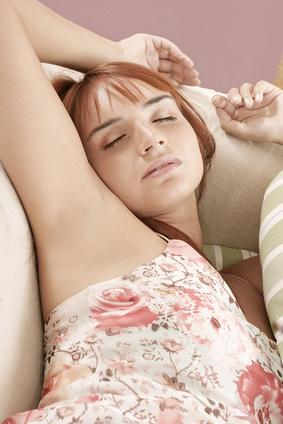Sleep apnea is more than just snoring when you sleep. If you have sleep apnea, your throat constricts in your sleep, preventing you from breathing for anywhere between 10 seconds and three minutes. You find yourself waking up, gasping for breath. Your doctor may want to try surgery to fix the problem, or he may encourage you to use a continuous positive airway pressure machine–a mask that prevents your throat from closing while sleeping. However, you may prefer to try some natural methods before taking such drastic measures.
Step 1
Change your pillow. You can purchase special pillows that are designed to prevent snoring. This pillow keeps your throat open. Clinical studies suggest that such pillows can help to treat mild and moderate cases of sleep apnea. These pillows encourage you to sleep on your side, which also helps with sleep apnea.
Step 2
Eat more fruits and vegetables. Being overweight is a main contributing factor to sleep apnea. Getting your diet under control can help you to lose weight. Low-calorie fruits and vegetables keep you full without adding a lot of calories, helping you to reduce weight overall.
Step 3
Use a saline spray to keep your nasal passages wet. Dry passages can make your apnea worse.
Step 4
Fall asleep naturally. If you use sleeping pills as an aid to sleep, you may be relaxing your air passageways too much, allowing them to close up while you sleep. Instead, work on winding down naturally, such as with a relaxing bath or a bit of yoga just before sleeping.
Step 5
Open your mind to alternative medicine. Traditional Chinese medicine may have the cures that you’re looking for. Talk to a specialist about what herbs you should take. He may suggest something like Avena sativa or Passiflora incarnata. Acupuncture can also help some cases of sleep apnea, though the Mayo Clinic suggests that more clinical research is necessary to determine a definite link.
Warnings
- Drinking alcohol right before you sleep could make sleep apnea worse. Avoid alcoholic beverages late at night.
Photo Credit
- woman sleeping image by forca from Fotolia.com





